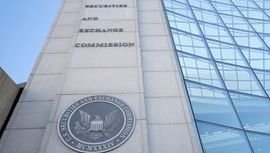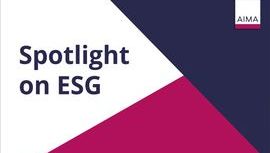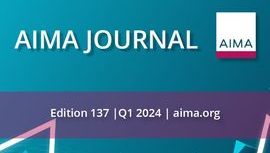Implementing the SDR: What next?
By Charlotte Chopping; Jacqueline Jones, Clifford Chance
Published: 18 March 2024
Core elements of the SDR
The UK’s sustainability disclosure requirements and labelling regime (SDR) came into force on 28 November 2023. It will apply to firms authorised by the UK’s Financial Conduct Authority (FCA), with a particular focus on UK-based asset managers. Intended to improve trust and transparency around sustainable investment products and to reduce greenwashing, the SDR comprises the following six core elements which apply in phases, starting in May 2024:
1. An anti-greenwashing rule, which will require all FCA-authorised firms to ensure that sustainability-related statements are fair, clear and not misleading, and consistent with the sustainability profile of the product or service in question.
2. Four voluntary sustainability product labels. UK managers may choose whether to use these labels for their products. If they do use a label, managers must ensure that the product meets the qualifying criteria for that label and that the other requirements of the SDR’s labelling regime (such as the requirement to product certain sustainability-related disclosures for the product) are satisfied.
The four labels are:
- Sustainability Focus – for products that invest in assets that are environmentally or socially sustainable;
- Sustainability Improvers – for products that invest in assets that have the potential to become more sustainable over time;
- Sustainability Impact – for products that aim to achieve a predefined, positive, measurable environmental and/or social impact; and
- Sustainability Mixed goals – for products that invest in assets that fall into a combination of the above three labels.
3. Restrictions on the use by FCA-authorised managers of sustainability-related terms in the name and marketing materials of certain products for retail clients. For these products, sustainability-related terms may only be used if: (i) the product also uses one of the four voluntary sustainability labels; or (ii) certain criteria are satisfied, which include the production of sustainability-related disclosures.
4. Product-level sustainability disclosure requirements, which include the requirement for FCA-authorised managers to produce short-form consumer-facing disclosures and more detailed pre-contractual and periodic product-level disclosures, but only in respect of certain products.
5. Entity-level disclosure requirements, under which FCA-authorised managers with assets under management of over £5 billion must make an annual Sustainability Entity Report. This must disclose how firms are managing sustainability-related risks and opportunities in relation to products managed on behalf of clients.
6. Requirements for FCA-authorised distributors to communicate labels (where used) and provide consumer-facing disclosures to retail investors. Distributors must also include a notice on overseas products to state that those products are not subject to the SDR.
For a more detailed overview of the SDR, please see our earlier briefing.
Implementation steps for firms
Managers’ implementation projects may be complex as the SDR incorporates a number of different elements, and the scope of application and implementation dates vary depending on the element in question. To structure implementation projects, managers may wish to consider the following five steps:
Step 1: Conduct scoping analysis
The first step that a manager should take is to determine which of its firms and products are within the scope of the SDR. This may be a complex task as the application of the SDR’s provisions varies depending on the measure in question. While the substantive elements of the regime (the labelling, naming, marketing, and disclosure rules) currently apply to FCA-authorised alternative investment fund managers and UCITS fund managers (together, managers) with respect to UK funds, there are also targeted rules which apply to distributors of products to retail investors in the UK and a broader anti-greenwashing rule which applies to all FCA-authorised firms. In addition, the rules apply in particular scenarios: some apply only when marketing to retail investors while others apply irrespective of the nature of a fund’s investors.
Finally, not all elements of the regime are mandatory. The labelling rules, for example, are voluntary, so even if a manager is technically within the scope of the SDR the rules related to the use of labels would only apply if a label were used.
Step 2: Prepare for the anti-greenwashing rule
Having identified in-scope firms and funds, managers will need to prepare for the anti-greenwashing rule. This is the first element of the SDR to come into effect, applying from 31 May 2024. It also applies more broadly than the rest of the regime as it applies to all FCA-authorised firms. Under the anti-greenwashing rule, firms must ensure that sustainability references in client communications and financial promotions are: (i) fair, clear and not misleading; and (ii) consistent with the sustainability characteristics of the product of service. The FCA has produced a consultation paper containing proposed guidance to assist firms in interpreting the anti-greenwashing rule but, at the time of writing, a finalised version of this guidance has yet to be published.
When preparing to implement the anti-greenwashing rule, firms will need to carefully identify in-scope communications. This will require firms not only to identify and review in-scope communications that will continue to be used after the rule comes into effect but to also implement procedures to ensure that in-scope communications created after the anti-greenwashing rule comes into effect are identified on an ongoing basis and subjected to a suitable anti-greenwashing review.
Step 3: Decide whether or not to use a label
From 31 July 2024, FCA-authorised managers may choose to use one of the four voluntary product labels created by the SDR. If a label is used, managers will need to ensure that the relevant product meets the qualifying criteria for that label. In particular, the product will need to have a sustainability objective that aligns with the relevant label. Additionally, at least 70% of the product’s assets must be invested in accordance with that sustainability objective (subject to certain mitigants, such as in respect of ‘ramp up’ periods for products that are not yet fully invested).
If a firm would like to use a label and is satisfied that the relevant product meets the qualifying criteria for that label, it will then need to comply with the remainder of the SDR’s labelling regime. This includes requirements to notify the FCA of the use of a label and to produce investor-facing disclosures.
Finally, firms will need to ensure that they create internal frameworks to consider whether labels should be used in respect of future product launches and to ensure ongoing compliance with the SDR’s labelling requirements, such as the requirement for the use of labels to be periodically reviewed.
Step 4: Implement the naming and marketing requirements
From 2 December 2024, FCA-authorised managers marketing unlabelled UK funds to retail investors will be prohibited from using sustainability related terms – such as ‘ESG’, ‘environment’, ‘social’, ‘impact’, ‘responsible’ or ‘sustainable’ – in the name or financial promotions for a fund, unless they comply with the naming and the marketing requirements in the SDR. These include requirements to prepare investor-facing sustainability disclosures and publish a ‘statement’ on the product’s webpage/app-page, clarifying that the product does not have a label and stating the reasons as to why.
Managers will need to ensure they are prepared to meet the naming and marketing requirements in respect of existing products from 2 December 2024 and to prepare for ongoing compliance in respect of new and existing products thereafter.
Step 5: Prepare for remaining disclosure requirements
Finally, FCA-authorised managers will need to ensure that they prepare to comply with any additional disclosure requirements not prepared for under steps 3 and 4 above. In particular, managers with assets under management above £5 billion will need to comply with the SDR’s requirement to produce an annual, entity-level sustainability report. This report will build on the TCDF Entity Reports that firms produce under the FCA’s existing TCFD-aligned reporting regime, considering sustainability matters more broadly.
After that – what’s on the horizon?
Firms must also monitor for future developments to the SDR regime. The UK Government has confirmed that it intends to consult on whether to broaden the scope of the SDR to include certain non-UK funds. It is not yet certain when this consultation will be published and how the proposed extension would operate. In addition, the FCA has confirmed that it intends to consult in early 2024 on producing a tailored version of the SDR for firms that carry on portfolio management activities in the UK. While firms conducting portfolio management activities were included within the scope of the SDR at consultation stage, the FCA removed them from the scope of most aspects of the SDR in its final package in response to feedback, opting to proceed instead with a separate consultation on how to apply the SDR to these firms.
Managers will need to keep a watching brief on these future developments as they contemplate their current SDR implementation plans.
This publication does not necessarily deal with every important topic or cover every aspect of the topics with which it deals. It is not designed to provide legal or other advice.
Managers’ implementation projects may be complex as the SDR incorporates a number of different elements, and the scope of application and implementation dates vary depending on the element in question.








